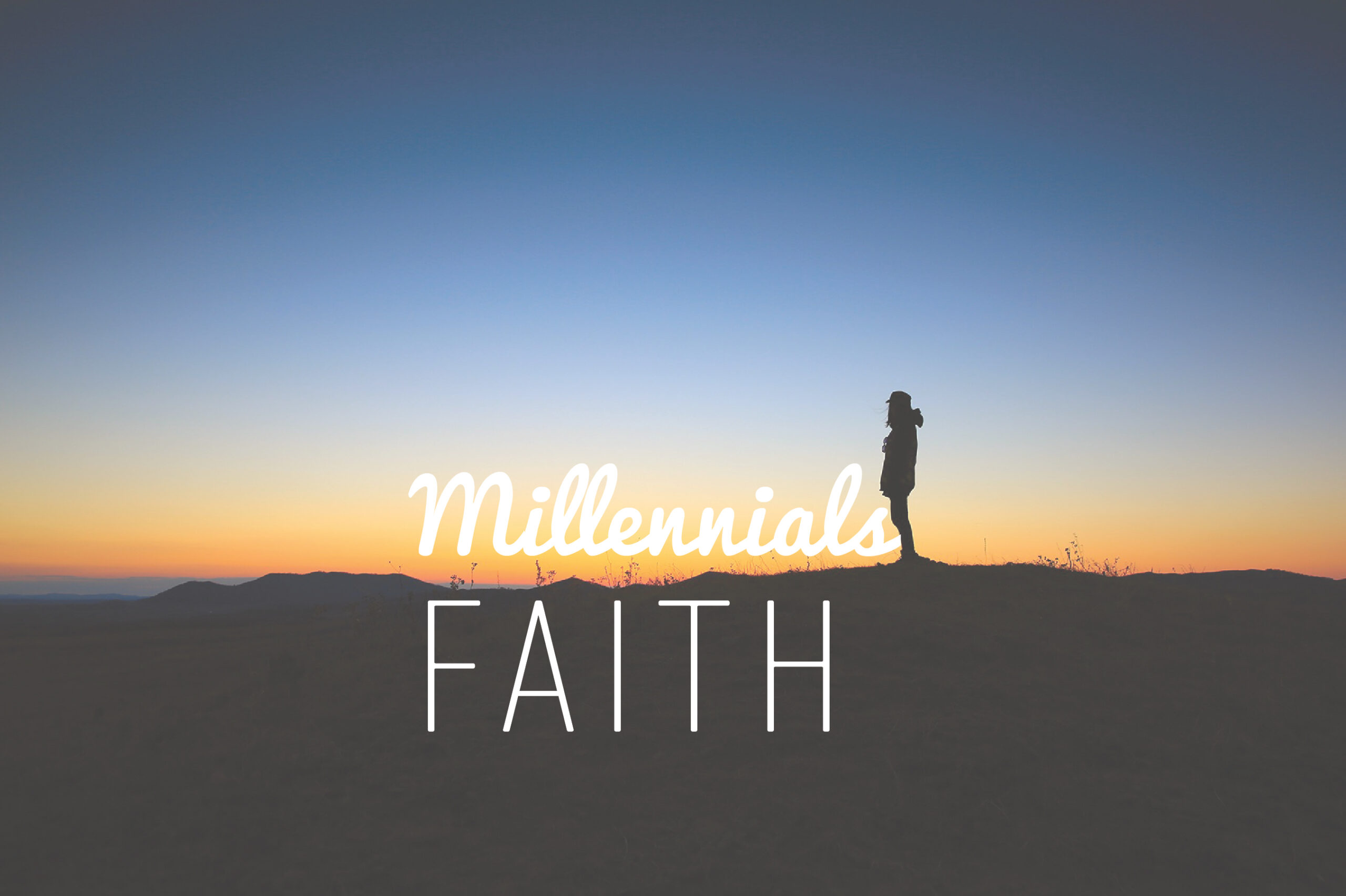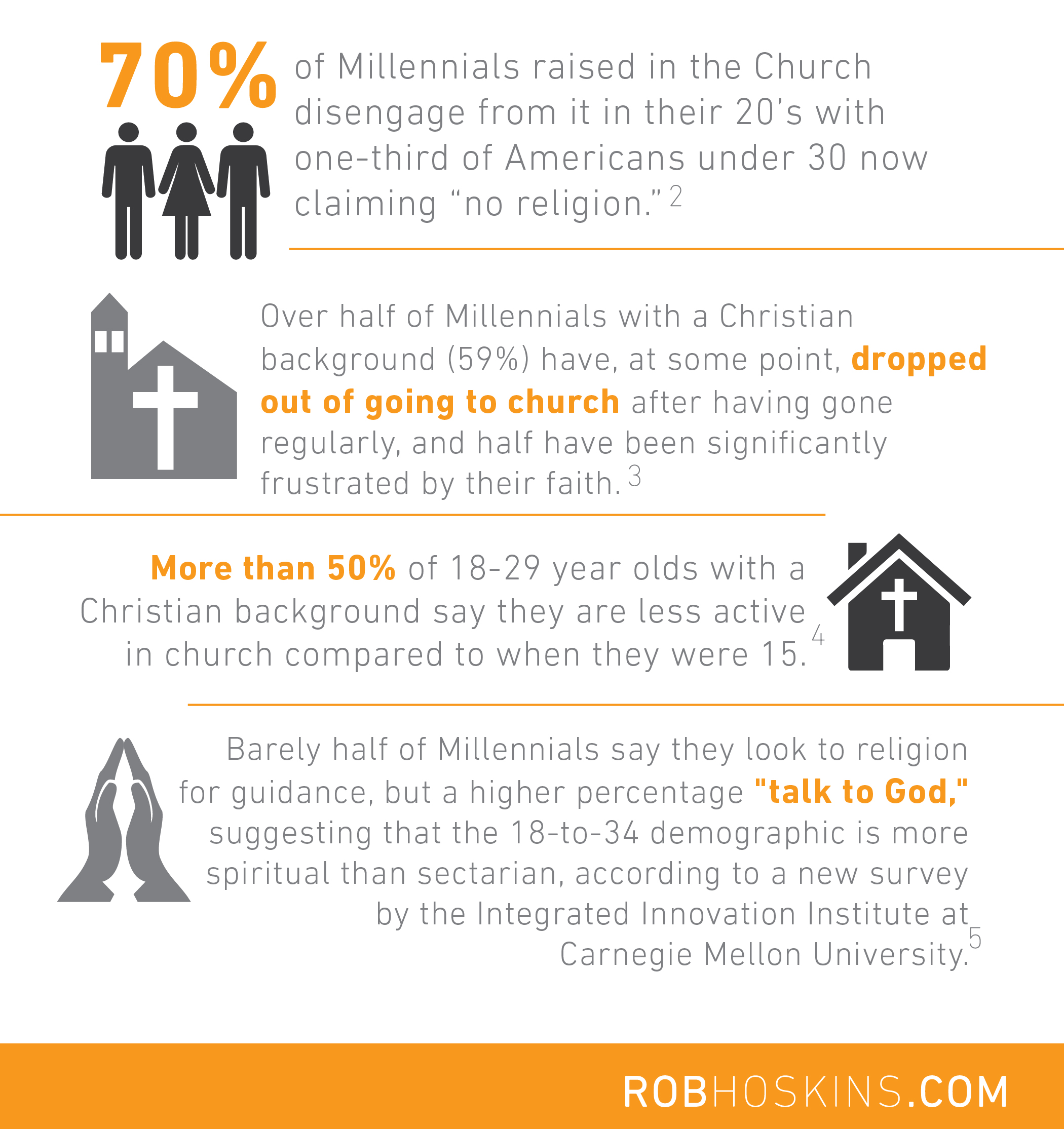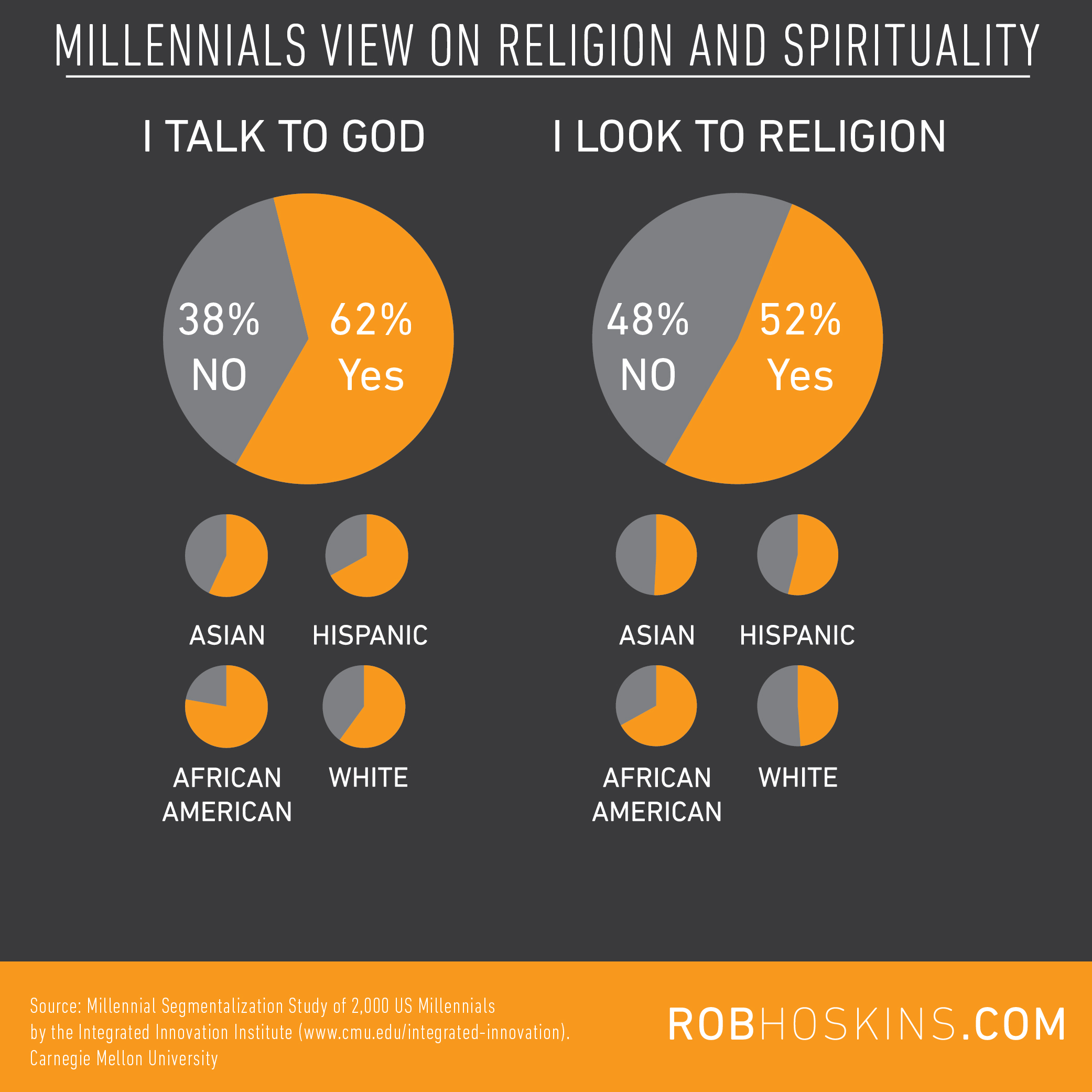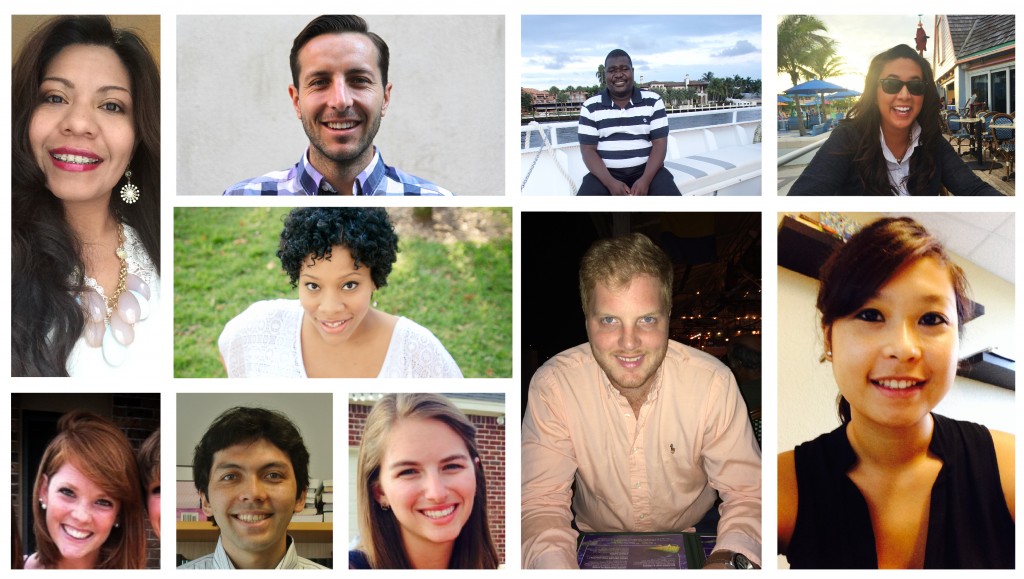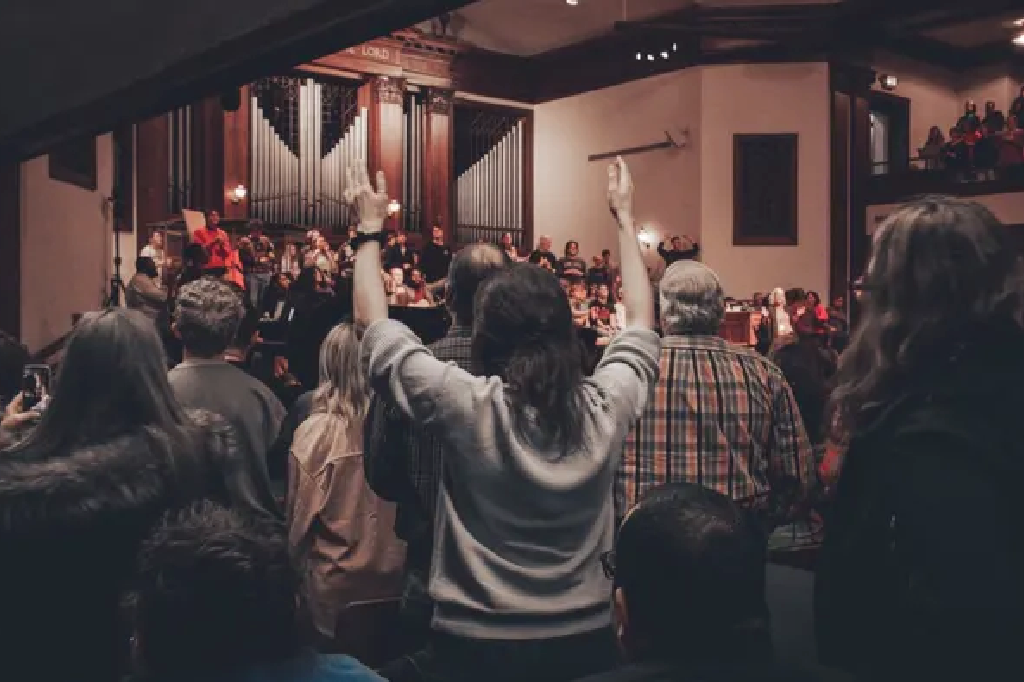Millennials, part 1
Millennials on the Bible and Miracles
Let’s face it, sometimes Millennials get a bad rap. But the numbers don’t always support the perception. For instance, among religiously-affiliated Millennials, their loyalty to an institution, organization or affiliation is as strong today as it has been among previous generations.
More than one-third of religiously affiliated Millennials (37%) say they are a “strong” member of their faith, the same as the 37% of Gen Xers who said this at a similar age and not significantly different than among Baby Boomers when they were young (31%). [1]
Then again, it’s not hard to find statistics that combat this purported loyalty:
As one study says, “There are 80 million Millennials in the U.S.—and approximately the same number of suggestions for how to bring them back to church.”[6]
“Millennials are widely believed to have less faith in God and are less active in religion than their parents and grandparents,” says Peter Boatwright, co-director of the Integrated Innovation Institute. [7]
With all the negativity swirling around, a positive trait Millennials have in their favor is their reputation for being passionate about causes—deemed “the social justice generation.” The assumption that, “Millennials are elevating physical needs over spiritual needs and forgoing evangelism altogether” holds no water according to the latest Barna research.
In fact, in answer to the question of evangelism on the rise or in decline, Millennials are a rare case indeed. While the evangelistic practices of all other generations have either declined or remained static in the past few years, Millennials are the only generation among whom evangelism is significantly on the rise. Their faith-sharing practices have escalated from 56% in 2010 to 65% in 2013.
Not only that, but born again Millennials share their faith more than any other generation today. Nearly two-thirds (65%) have presented the Gospel to another within the past year, in contrast to the national average of about half (52%) of born again Christians.[8]
We asked our OneHope Millennials to take a look at the numbers and gave them a chance to respond to the perception that their generation has laissez-faire faith.
While more than a handful responded with, “I agree” or “it’s sad, but true” type sentiments, this question stirred up quite a bit of passion:
“I would say in many ways it can be true and I can see it being perceived that way, that we like any other generation deal with a set of issues that is unique to our generation. But at the same time we have some of the most passionate, active and God fearing Christ followers as well in our generation.”
-JP Young
“I completely agree, and I think it is perhaps one of the most dangerous attitudes one can have in relation to faith. Research still indicates that this generation is very spiritual; the problem is that the spirituality is ill-defined, immature, and no longer explicitly Christian. In many ways, this generation is the generation of apathetic deism. We still believe in a transcendent god, just not enough to care about how that belief impacts the way we think, behave, and interact with others.”
-Jesse Daniel Stone
“I actually completely disagree with that statement. I think that my generation is anything but laissez-faire. When my peers believe in something, they give their all for it. I think we are a generation of fighters no matter what we are fighting for. When it comes to faith, I believe this generation is the first to really own their faith or lack of it. They are not afraid to speak their mind and they know what they believe. I think we should celebrate the fact that people are so open about their thoughts and willing to discuss them rather than put a blanket statement like ‘laissez faire’ on this generation.”
-Julia Wilson
“It breaks my heart because I know it is often true. I believe in the Western, consumeristic, entertainment driven ‘Christian’ subculture, my generation has not been confronted with their need for God, the reality of their sin, and the cost of following Christ. The version of Christianity they are familiar with is something that would cause anyone to have laissez-faire faith—a watered-down, feel-good moralism that is dictated more by culture than by God’s Word. God’s Word is radical. God’s Word is deep. God’s Word is authentic. We are jaded. We are deaf. We are asleep. This generation, I believe, if authentically encountered with the confronting Truth of Scripture would have a much different kind of faith.”
-Diandra Bree Hoskins
“My generation is one of paradox. We embrace a laissez-faire approach to many elements of this world, while being more strict, passionate, or opinionated about others. Though statistics may show a laissez-faire approach to the Christian faith, the reality is that underneath the statistics, this generation may be the most passionate, opinionated, and inspirational generation yet—it’s just that our “faith” has been co-opted by post-modernity and hyper-individualism. MTD (moralistic therapeutic deism) is a more accurate description of our faith, whether we are ‘Christian’ or not.”
-Ryan Secrest
“It’s a stereotype, but one not without merit. If churches preach that membership doesn’t matter, that doctrine divides, and that Christianity is primarily about feeling good and doing the right thing, we shouldn’t be surprised when individuals find other communities and other doctrines that make them feel better and seem to be doing better things. At the same time, research indicates that church involvement (not necessarily “evangelical” identification) remains steady. Many Millennials are exploring the deep and wide of the Christian tradition, and experiencing faith in profound and sustaining ways.”
-Brandon Ratliff
Indicative of their generation, Millennials speak for themselves. What have you heard from this generation?
And just for fun, take this survey How Millennial are you? A quick survey from the Pew Research Center (I scored 69…Tweet me your score @RobHoskins)
Millennials, part 1
Millennials on the Bible and Miracles
You might also like:
- Spiritually homeless youth
- Rules of engagement when sharing your faith
- Optimism for the future
- Sexless Japan
